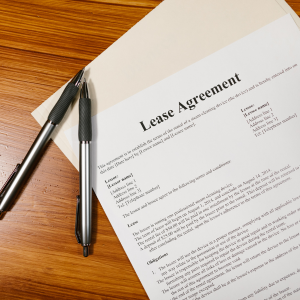
From an outsider’s perspective, selling a house in Georgia while tenants currently occupy the property may seem difficult. Still, with the proper methodology, it can be done with ease. If you are an investor looking for something new or want to relocate, selling a house with tenants in place is not a problem, but you must first know your rights and obligations. This guide will provide you with the legal strategies and practical ways to take the logistical headaches of selling your house with tenants. Know how to deal with tenants and seller prospects in ways that will benefit you, your tenants, and your property the most. Learn the most practical strategies for selling a house with tenants in Georgia.
Understanding Tenant-Occupied Property in Georgia
In Georgia, selling a property that a tenant occupies involves more than a cursory knowledge of real estate transactions — it is a selling and owning a tenant-occupied property ordeal. Such sales are more than just a monetized transfer of ownership of a physical house. Many legal issues, obligations, and aspects of tenant rights and the market could help sell the home or create a bungle. Georgia, being Georgia, the existing rental agreements dictate how the sale proceeds and how the property sale intrigues a prospective buyer.
For landlords, this often means balancing the desire to maximize property value with the need to honor lease terms and maintain positive tenant relationships throughout the transition. For investors, the presence of reliable tenants can actually be a selling point, offering immediate rental income and stability. Regardless of whether you are an enthusiastic seller with a positive momentum or an investor analyzing the real estate/economics due to the sustained leases, a proper grasp of tenant-occupied properties in Georgia is fundamental. This guide clarifies the basic principles of these properties and describes what sellers and buyers need to consider in a real estate deal in Georgia.
What Does Selling a Tenant-Occupied Property Mean?
In Georgia, selling a tenant-occupied property means selling a home with an active lease. Unlike selling a vacant house, this involves more of a tenant-occupied property’s financial goals vs. the leaseholder’s rights under Georgia’s landlord-tenant laws. A tenant-occupied property is more than simply real estate; it is a leased estate, a managerial Excel tracker, and a scheduled maintenance work, notice, and security deposit lease obligations.
Some owners may decide to sell with tenants still in place to attract investors looking for guaranteed rental income or simply because the lease terms make being unoccupied unreasonable. Buying a managed occupied property can be desirable, with immediate cash flow and less risk. Although tenants’ rights to peaceable enjoyment must be preserved, sellers must also control expectations, provide proper access to the property, and give notice about the scheduled inspections and other activities.
In Georgia, buyers inherit existing lease agreements and landlord responsibilities, making thorough documentation of leases, payments, repairs, and tenant history essential. A well-maintained property with stable tenants can command a higher value, while poorly managed rentals may face more challenges on the market.
In the end, dealing with tenants is communication, the law, and detailed management. The success in this case is in treating the sale as a sale, in both form and substance, as well as a new form of a relationship, that is as seamless as possible for the clients, the buyer, and the tenants.
Ready to explore selling your tenant-occupied property in Georgia? Contact us today for a no-obligation offer, and let us help you navigate the process easily.
Key Laws Affecting Property Sale with Tenants
Understanding the key laws that impact a property sale with tenants in Georgia is crucial for any landlord or property owner contemplating the sale of a tenant-occupied house. As regulatory constraints are tedious and fragmented, bordering on capricious, they determine how lease contracts must be complied with, concerning what the seller and the current occupiers stand to gain or lose in the given transaction. These are the legal intricacies and how they will configure the structures of the transaction you are in, terminating with a lease of a specified duration, within a rental contract on a rolling month basis, or with legacy tenants from former managers.
In practice, this means that you, as the seller, cannot simply disregard an active lease agreement or expect tenants to leave immediately once the property is listed. Instead, the lease remains in full force, transferring to the new buyer, who essentially steps into your role as landlord. Georgia law provides more flexibility for month-to-month tenants but requires proper notice before any changes occur. Understanding these distinctions will help you manage buyer expectations, uphold legal responsibilities, and maintain positive tenant relations.
Clarifying the contract of leases, notice periods, and the obligations of the remaining leases will equip you on how best to approach selling property in Georgia that still has tenants, and how to avoid pitfalls. It will also protect you from quarrels with the tenants and other litigants and hasten the deal’s closing.
Navigating Lease Agreements
Selling a house with tenants in Georgia intersects directly with the lease agreements currently in force. Georgia law recognizes these agreements’ legitimacy and binding nature, which means they do not disappear when the property changes ownership—they run with the property. Tenants retain the right to remain in the house under the original terms unless legal provisions or specific lease clauses say otherwise.
Lease agreements are contracts that set out essential terms between landlords and tenants and can be written or verbal. They are mainly focused on the duration of the lease and the rent to be paid, the notice periods, maintenance duties, and property sale clauses. They also contain payment clauses such as reminder and debt recovery clauses. Sellers are required to check the lease in detail. A good lease will state whether the property is physically occupied, showable, leaseable, or maintainable, transferrable, and the notice periods required. Such landlords must insert sale-specific clauses to avoid ambiguity if a sale is foreseen.
Existing leases can influence negotiations and thus the sale price. An active lease with good tenants attracts investors seeking immediate rental payments. Buyers who want to occupy the property will be restricted. A lease may have an early termination clause restricted to property sale, but such a lease must comply with the state of Georgia. Tenants, proper notice to tenants selling the property, and good records of the premises will help reduce the number of disputes over access and the absence of compliant tenants.
Nance Homebuyer helps Georgia property owners sell homes with tenants in place. We understand lease agreements are binding and must be honored, so we provide fair cash offers, handle the tenant-related details, and make the sale process smooth and compliant with Georgia law.
Legal Requirements

State landlord-tenant laws fill the gaps when Georgia leases are silent on specific terms. For example, if the lease does not specify notice for entry to show the property, “reasonable notice” applies—typically at least 24 hours. Landlords must also respect tenants’ right to quiet enjoyment, or risk legal disputes that complicate the sale.
Notice requirements are fundamental. For fixed-term leases, tenants generally remain until the lease ends unless both parties agree otherwise or a termination clause is invoked. According to Georgia law, landlords for month-to-month contracts must give written notice of intention to terminate the agreement at least 60 days before the termination date. In comparison, tenants only need to give 30 days’ notice before the termination date. Not meeting notice obligations can create legal liability and closing delays.
The newly acquired property transfers ownership to the buyer and remains subject to all existing lease obligations, including security deposits, rent, and utility or service payments. Sellers must comply with legal requirements to ensure a smooth transition. This includes retaining duplicate copies of all lease agreements, providing account statements for deposits, and fulfilling any outstanding repair obligations before completing the sale.
Thorough documentation—such as written notices, tenant correspondence, and agreed timelines—protects all parties and demonstrates good faith in case of disputes. Transparency about current leases and obligations is vital to both tenants and prospective buyers. By respecting notice rules, honoring existing agreements, and disclosing all relevant documents, sellers safeguard themselves against delays and costly complications while creating a solid legal foundation for the sale.
Communicating With Tenants Before Listing Your House
Ensuring proactive communication with the tenants far ahead of time, as you prepare to sell your assets in Georgia, is critical. No showing, inspection, or access is performed during the listing period unless agreed upon in the accompanying legally binding communication. It goes without saying and is the bare minimum for a tenant to receive any form of defined advance communication about scheduled access.
It is clearly defined, customary, and encompassing in any contract, so it is better framed as building informal relationships for good. It is indeed of far greater value to feel comfortable during the week the house is being shown than to receive discomfort during the process the week after. This is also true for extending the time period to process maintenance and other issues that might arise. This also shows that the proactive measures will significantly enhance and return to the tenants.
How to Give Reasonable Notice for Showings and Inspections
The legalities of providing notice to your tenants go beyond simple compliance. It’s smart business that safeguards your investment property and helps ensure a smoother sale of a Georgia home with tenants. Proper notice also prevents tenant disputes during showings or inspections and keeps you from unintentionally breaching Georgia law.
For example, Georgia tenants have the right to what is known as quiet enjoyment, or the right to possession of the property without undue interference. Most leases establish the minimum notice required; absent a policy, “reasonable notice” generally means a minimum of 24 hours. This is another reason why the lease should be the first place to go for an answer— and when in doubt, notice is preferable. Written notice, whether as a letter, an email, or a tenant platform message, is a good practice because it avoids hearsay and confusion.
Notices should state the purpose (showing, inspection, appraisal) and the proposed time and allow tenants to request adjustments. Flexibility encourages cooperation. To minimize disruption, consider grouping tours into set showing windows or open houses instead of multiple isolated visits.
Documentation of all notifications and responses is maintained for protection and professional purposes. Explain to tenants who will be entering and how their property will be respected for those who are uncomfortable. Explain the purpose of inspections for those who find them more intrusive to assist in advancing the sale. Small discounts on rent or gift cards can motivate tenants to assist.
Always notify those attending—customers, real property evaluators, builders, or those inspecting. Constantly being transparent calms lessees and instills purchasers’ belief in orderly property management.
To summarize, reasonable notice is not merely a legal requirement in the State of Georgia—it borders on being a standard of industry. The ability to manage complex issues through a prompt, orderly, and reasonable record brings about a protected reputation and smooth property sales.
Managing Existing Lease Agreement During a Property Sale

Handling an existing lease agreement during a property sale in Georgia is a balancing act between respecting tenants’ rights and satisfying potential buyers’ expectations. Every lease has some semblance of real-world logic—from legal obligations and fixed terms safeguarding tenant occupancy to pending renewals that might change the property’s desirability. These factors affect the sales timeline, and potential buyers are interested enough to inquire.
Smooth management of existing contracts, renewals, and tenant correspondence helps facilitate the primary goal of the lease. Sellers who understand the fine print of the lease and the property’s strategic positioning steer clear of cumbersome laws and tenant ill will. Property buyers will face less hostility with proper planning and can be assured of less complex paperwork.
Circumstances dictate the adoption of specific strategies; for instance, some investors prefer a long-term tenant that pays a dependable monthly rent, while owner-occupiers might want a tenant with a lease coming to expiry. As regards both scenarios, the participation of property managers, as well as real estate brokers, can assist in simplifying the process by, for instance, obeying the law in Georgia in formulating the lease agreement as a positive, rather than a negative asset, and strategically shaping the lease to become a contract lease that is considered an advantage. By adopting an effective strategy, the sellers can turn the disadvantage of having tenants into an advantage to increase the selling price of the property.
Strategies for Handling Lease Terms and Renewals
Selling a house in Georgia with tenants in place requires careful handling of existing leases. These agreements dictate timelines, tenant rights, access for showings, and buyer interest—making a thorough review your first step. Focus on clauses covering occupancy, notice periods, showings, and renewals, as they shape tenant conversations and buyer expectations.
Lease terms often determine whether the property can be marketed with a long-term tenant (appealing to investors) or short-term flexibility (attractive to buyers planning to occupy). Renewal clauses, notice requirements, or early-termination provisions should be carefully understood, as they can enable or restrict your sale timeline.
Open and honest communication with tenants is critical. If the sale will go past the current lease, the terms need to be addressed early at the time of renewal, including a change of payment, a month-to-month option, and rent adjustments. Tenants in Georgia typically have a lease right until the end of the contract unless stated differently, and openness will reduce conflicts.
Both real estate professionals and property managers will assist with lease renewals, addenda to the lease, and even manage the property’s showings. Some lease transitions can be handled through incentives such as flexible terms for lower lease payments; however, all incentives or changes have to be agreed upon and put in writing.
In the owner’s view, stable long-term leases please investors, while short-term or expiring leases may attract owner-occupants. Well-documented processes regarding rent payments, lease history, and renewal terms enhance trust and facilitate negotiations.
A temporary defensive posture toward aggressively optimized renewal processes strengthens tenant relations, reducing disputes and rent, and shows denial risks. A review of the laws is paramount in this situation to avoid the risk of the Georgia statute and its legal applicability. Effective communication and lease clarity, paired with clear counteractions during the entire process, boost the timely selling and marketing of the asset.
Practical Tips for a Smooth House Sale With Tenants
Successfully navigating the sale of a house with tenants in Georgia comes down to fostering trust, clear communication, and well-executed logistics. Unlike a standard home sale, where the property is vacant and easily staged, a tenant-occupied sale requires careful coordination between the seller, the tenants, and often the listing agent. As sellers, you may want to sell your house for cash in Marietta and the surrounding cities in Georgia. You must balance maintaining property appeal and tenant privacy while ensuring cooperation throughout sales.
Actionable strategies lead to tangible results. Focusing on even the potential of the existing furniture to stage the house in a manner that best showcases the property would be beneficial. Positive tenant engagement, whether by open dialogue, offering incentives, adjusting schedules to show the property, and flexible response, helps both to win and build goodwill. Third, a tenant-centric approach to planning and communication is essential to border planning. The tenant’s daily life and the buyers’ prospects, where the buyers have sufficient opportunity to experience the property, would not be sacrificed.
When these elements occur together, all parties will certainly have a seamless transaction. Sellers have reduced their and their tenants’ stress while increasing the property’s visibility and marketability in a highly competitive real estate market through cooperation, presentation, and stress focus. There is a carefully thought-out, strategic approach. Interest will maximize, and the buyer’s home will increase in value. The home will also enable the buyer to achieve the most desirable sale outcome.
Staging the Property with Tenants Before the Sale

Staging a house for sale, ensuring it looks its best for every visit, is a cornerstone of the real estate process. In a traditional unoccupied sale, sellers might bring in designers, rent furniture, or clear clutter with minimal hassle. However, with tenants present, this approach requires adaptation. Their belongings become part of the presentation and can significantly influence a buyer’s impression.
Work with tenants to create routines that allow staging while respecting their privacy and schedules. Setting predictable weekly cleaning times and providing simple checklists—like making beds, reducing clutter, taking out trash, and keeping surfaces clear—helps maintain a buyer-ready look without overwhelming them.
Georgia real estate professionals often recommend neutralizing décor when possible. If tenants agree, removing personal items such as bold artwork or sports memorabilia creates a blank canvas for buyers. Temporary bins or boxes from agents or photographers can simplify this process.
Finally, owners should ensure the property itself is market-ready. Address needed repairs, confirm appliances and systems work correctly, and consider professional deep cleaning of carpets, windows, and surfaces. These proactive steps elevate staging efforts and minimize surprises on showing days.
Facilitating Cooperation from Tenants
The starting point is communication. Invite tenants into the process with an honest discussion about the sale, staging, and how cooperation benefits everyone—including easing their transition if they plan to move. Transparency builds trust and helps tenants feel respected.
Incentives can further encourage cooperation. Many Georgia landlords find tenants more willing to maintain cleanliness, make minor repairs, or adjust furnishings when offered something in return, such as a rental discount, gift card, or moving assistance.
Reduce friction during showings by coordinating “showing windows” instead of random visits, giving tenants time to prepare. As Georgia law requires, always provide written notice.
Some tenants may worry about lease rights or rental security. Reassure them that staging changes are temporary and that their lease, deposit, and privacy will be protected.
Finally, maintain friendly communication throughout the process. Share updates, provide advance notice of timelines, and respond quickly to concerns. Sellers who foster goodwill often achieve smoother sales, faster closings, and stronger results.
Checklist for Selling a Property With Tenants in Georgia
Making a successful sale of your house or other real estate in Georgia while tenants remain in place calls for a thorough, step-by-step approach. Unlike selling a vacant home, this process requires balancing several moving parts—compliance with Georgia property laws, meeting buyer expectations in a competitive real estate market, and maintaining positive relations with current tenants. Each factor can affect the ease of the sale and the final value you can secure, especially when working with Georgia cash buyers who often seek straightforward, tenant-occupied investment opportunities.
A well-structured checklist becomes your roadmap through this process. It helps you stay organized, minimize legal risks, and anticipate issues before they surface. From carefully reviewing lease terms to confirming your disclosure obligations and arranging a smooth transfer of security deposits, each task builds toward a seamless transaction. Sellers who prepare early are better positioned to avoid costly surprises, reduce delays, and present their property in the best possible light—even with tenants in place.
This guide provides more than just a list of tasks. You’ll find a tailored checklist designed for Georgia landlords and homeowners, expert insights on leveraging practical resources like downloadable legal forms and tenant notices, and actionable guidance for your next steps. By following a clear framework, you can confidently approach the sale, protect your investment, and achieve a smooth closing that works for you, your buyer, and your tenants.
Downloadable Resources and Next Steps
When selling a tenant-occupied property in Georgia, begin with a detailed checklist covering lease terms, entry rights, renewal options, and early termination clauses. Pair this with downloadable legal forms—such as disclosure templates, notices, and deposit transfer documents—often available from REALTOR® boards or property associations. Collect supporting records like payment histories, maintenance logs, and inspection reports into a digital or physical binder to share with buyers. Organized, transparent documentation builds trust, speeds negotiations, and can even attract multiple cash offers.
At the same time, tenants should be introduced to the process early, reassuring them that their lease rights will be respected. Use notice forms for showings and sale updates, and prepare compliant deposit transfer documents to avoid disputes. Proactively share disclosures, lease copies, and payment histories with potential buyers to inspire confidence. Leverage digital signing tools for efficiency while keeping paper copies for those who prefer them. Finally, work with an experienced Georgia agent or attorney familiar with tenant-occupied sales to guide pricing, marketing, and negotiations, ensuring a smoother and faster closing.
Need to sell your house fast? Nance Homebuyer buys as-is for cash, no repairs or hassles. Call +17707582729 today for a fair, no-obligation offer!
Helpful Georgia Blog Articles
- Fixing Up a House to Sell in Georgia
- Selling Your House with Tenants in Georgia
- Selling a House During Divorce in Georgia
- How to Sell a House Without a Realtor in Georgia
- Does a Seller Pay Closing Costs in Georgia?
- Capital Gains Tax After Selling a House in Georgia
- I Inherited a House in Georgia Now What?
- Selling Shares of Your Home in Georgia
- How Long to Live in a House Before Selling in Georgia
- How To Sell A House With A Mortgage In Georgia

